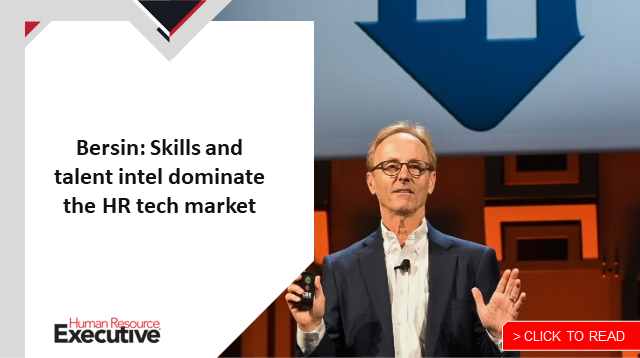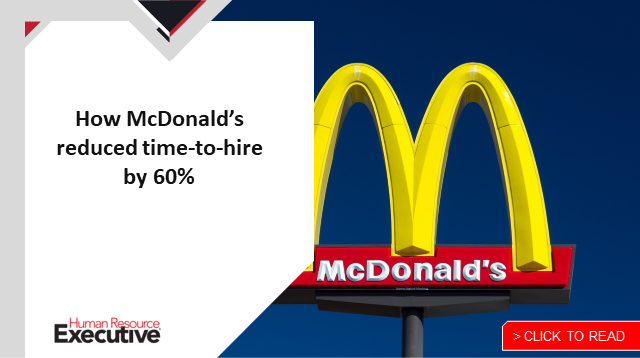In the depths of the media coverage of layoffs and hiring freezes in some large, noteworthy organizations, often in the technology sector, was one report analyzing an interesting factor that has led to some of these reductions, specifically at Amazon. According to the technology website Vox, Amazon may be directly connecting some staff reductions—namely for junior and mid-level recruiters—with the development and implementation of new artificial intelligence technologies.
From the Vox reporting, an October 2021 internal paper labeled as “Amazon confidential” described that the tech giant “has been working for at least the last year to hand over some of its recruiters’ tasks to an AI technology that aims to predict which job applicants across certain corporate and warehouse jobs will be successful in a given role and fast-track them to an interview—without a human recruiter’s involvement.” In part, Vox wrote, the unnamed solution finds “similarities between the resumes of current, well-performing Amazon employees and those of job applicants applying for similar jobs.”
According to Vox, “an initial test” found that such an approach can successfully guard against biases based on race and gender. “Artificial intelligence has become more widely used in hiring across industries in recent years,” Vox wrote, “but there remain questions about its role in introducing or amplifying biases that may occur in hiring processes.”
There’s plenty to unpack here, so let’s examine what this could mean for recruiting and HR technology more generally.
For recruiting
The introduction of artificial intelligence technology for recruiting is not new; we’ve seen scores of HR technology companies develop AI-enabled solutions to support, augment and increase the efficiency of the recruiting process for quite some time now. Just some recruiting process areas where AI technology has experienced significant adoption include:
- Tools that use AI models to improve the text of job descriptions
- The intelligent automation of digital job advertising
- Automated and algorithmic candidate profile scoring and “fit” ranking
- AI-powered candidate assessments
- AI-enhanced interviewing—for both interview scheduling and structuring, as well as interview scoring
- Offer-letter generation—using AI to create offers more likely to be accepted and stay within budgetary constraints
While these kinds of AI-technology solutions have been influential in altering and generally improving recruitment practices, we have not typically seen a general displacement of recruiters themselves inside organizations adopting more AI tools. The recruiting profession, like many others impacted by the introduction of AI technologies, has generally prospered despite the potential of AI to disrupt and even replace human recruiters. This could be due to the fact that the more mainstream development and implementation of AI technology in recruiting over the last 10 years or so has coincided with a period of persistent low unemployment and extremely tight labor markets.
So, even though these AI technologies had the potential or even the demonstrated capability to allow organizations to conduct the same level of recruiting activity (and with arguably better quality and efficiency) most organizations’ hiring challenges have been so great in recent years that reducing recruiter headcount was largely not seen as a necessary, or even a desired, outcome. In an environment where open jobs have been plentiful, time-to-fill openings have been increasing and candidates have been ghosting employers throughout the recruiting process, having fewer recruiters has not seemed like a winning option for organizations.
But, with the first signs now showing of a slower, looser labor market, those conclusions are likely to be re-evaluated. And if AI technology continues to develop, we could see more companies following Amazon’s lead in making more aggressive moves toward replacing recruiter tasks (and reducing recruiter staffing levels) with AI technology.
For HR technology
You may recall that these new developments from the Amazon HR and IT groups are not the technology and retail giant’s first attempts at using AI and advanced technology to improve recruiting. Several years ago, Amazon experimented with similar AI capabilities to attempt to enhance candidate screening and selection processes. But back then, the testing revealed that the AI technology introduced, or perhaps reinforced, biases in the candidate evaluation process, specifically in the assessment of women. The initial Amazon AI technology was not rating candidates for software developer jobs and other technical posts in a gender-neutral way; it was found to be consistently rating women lower than men with similar candidate profiles.
This was because Amazon’s AI models were trained to evaluate applicants by observing patterns in resumes submitted to the company over a previous 10-year period. Most of these resumes, and the ensuing candidates who were eventually hired, came from men—a reflection of the traditional male dominance seen across many technology organizations. These early AI models were not sophisticated enough to recognize these patterns, and Amazon eventually scrapped the program after a few years of experimentation.
The key difference between those initial Amazon tests of the AI-enabled candidate evaluation and selection tool and the one being reported on recently is that, according to the Vox reporting, Amazon now believes that it has figured out how to program the AI model to avoid the kinds of adverse impact in selecting candidates that plagued the earlier testing. In the internal Amazon memo describing the testing that was obtained by Vox, “the model is achieving precision comparable to that of the manual process and is not evidencing adverse impact.” Which, if true, spells concern for recruiters at Amazon, and perhaps other organizations as well, who, in a slowing economy, may seek to find and exploit the efficiencies and cost reduction associated with automating candidate screening and selection.
 More generally, the apparent success of the new Amazon AI technology suggests that, in times of economic concern and budgetary pressures, organizations will seek more HR technology solutions that not only supplement the work of the people in HR and recruiting but can also effectively replace large components of these individuals’ tasks. And if—as appears to be the case in the new iteration of the Amazon AI technology—it can be demonstrated that bias and adverse impact can be evaluated and eliminated, these technologies become even more attractive.
More generally, the apparent success of the new Amazon AI technology suggests that, in times of economic concern and budgetary pressures, organizations will seek more HR technology solutions that not only supplement the work of the people in HR and recruiting but can also effectively replace large components of these individuals’ tasks. And if—as appears to be the case in the new iteration of the Amazon AI technology—it can be demonstrated that bias and adverse impact can be evaluated and eliminated, these technologies become even more attractive.
In a growing economy with a historically tight labor market, organizations were happy to reconfigure jobs and tasks that kept HR and recruiting staffing levels high and use AI technology as a complement to their teams and human expertise. But if the labor market cools off, and more organizations look to reduce staffing and cut costs, then, after more than a decade of worrying about the role of recruiters in the age of AI and automation, the industry will finally have to come to terms with the new relationship between recruiters and technology.
The post In a slowing hiring market, will AI finally revolutionize recruiting? appeared first on HR Executive.